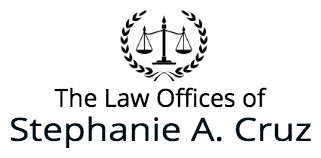Wills & Trusts
Wills & Trusts
Why You
Need a Will
Far too many clients come to our office under the impression that if they have no will, some way, some how, their estate will magically be distributed as they would have wanted with little to no hassle. Due to the fact that nearly half of people have no estate estate plan, will or trust in place, the State of Florida created the intestacy laws that would decide for the decedent how the assets of the decedent are going to be distributed.
Example how the intestacy laws would effect the deceased assets in the following fictional situation:
John was happily married to Donna for 35 years, they had one daughter together, Samantha. Prior to Donna meeting and marrying John, Donna was a single mom, and had a son named Greg with another man. Prior to death, John had a savings account worth $200,000 in his name alone, and a condominium in South Beach where John and Donna own the property as husband and wife. Years pass and John suddenly falls ill and dies without a will. Prior to death, John tells Donna that he wanted her to keep all his assets, and that she was to give nothing to Samantha because Samantha had not spoken to John in 30 years.
With John passed, the condo owned as husband and wife is now owned outright by Donna, and as homestead property, would be an exempt asset of the estate. However, the $200,000 savings account owned by John alone is not hers to withdraw, and is essentially frozen until she gets a court order ordering the bank to release the money, and the payees for who the money is to be distributed to is clearly identified by the order.
So what happens to John's assets under Florida Law:
As a brief analysis, first, in order for Donna to have authority to gather and distribute any of Johns assets she would have to obtain a court order naming Donna as Personal Representative of the estate, and Letters of Administration would have to be issued. In this case, Donna would have to hire an attorney to open a formal probate administration because the estate is valued over $75,000. Probate administration would likely cost Donna approximately $4,000 in legal fees and other costs, and she would have to wait several months for the probate court to sign any orders that she needed. Due to Donna having a son that is not a descendant of John, which John did not adopt, and because there is no will, Florida law would have Donna receive 50% of the estate, and the remaining 50% is to go to Samantha who John wanted to get nothing.
If John were alive he would be very upset that Samantha gets half of his estate, but since he did not have a will there is nothing that can be done, as the laws of the state of Florida would govern the situation.
Why You Need a Trust
A living trust is a instrument that you can establish during your lifetime for your benefit, and for the benefit of your spouse, and loved ones. If you create a Florida living trust, you would be the trust maker, where you would also serve as a trustee with a successor trustee, and there would be beneficiaries who would benefit from the trust assets and income. Since you would be a trustee of the trust during your lifetime, you would have complete control over management of the trust assets. The terms of a living trust would be set forth by you in the trust agreement, and said terms would become irrevocable, and not subject to change at the moment you pass away.
The two most often cited advantages of a living trust are:
- Avoiding court administered guardianship in the event of the your incapacity
- Avoidance of probate upon the your death

